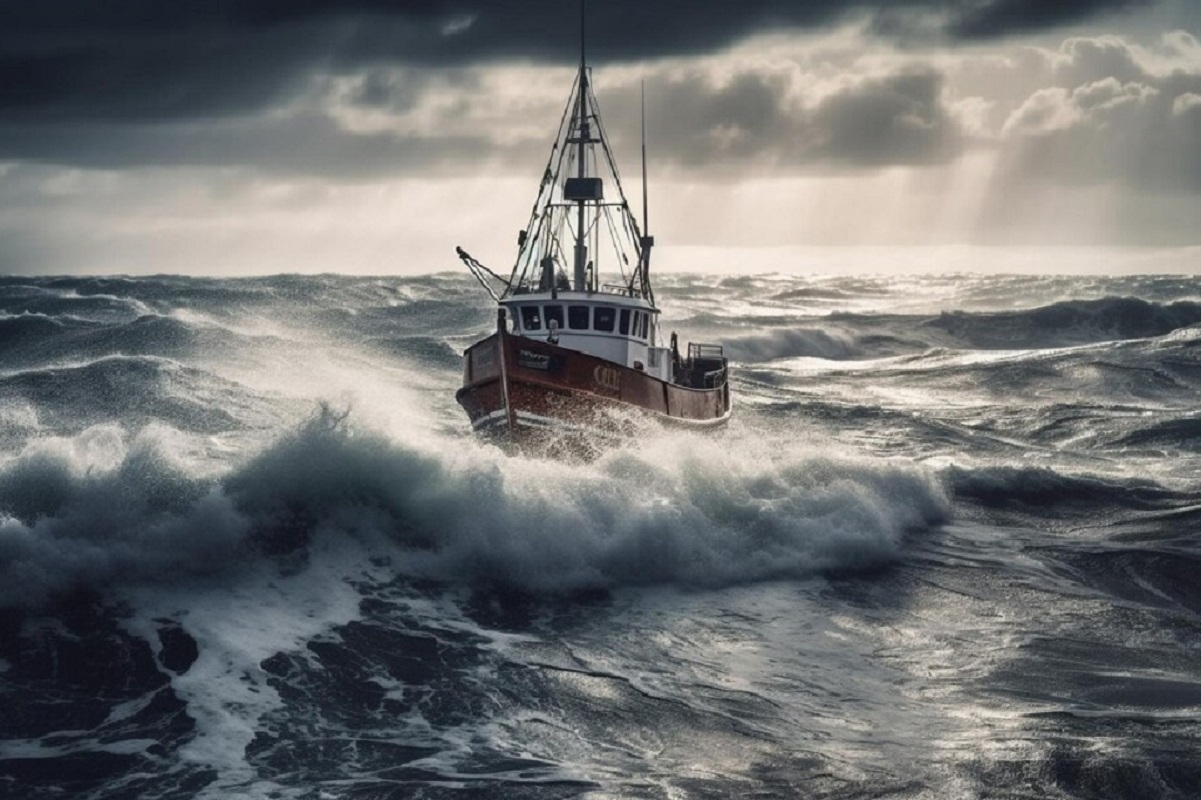Scientists from St Petersburg University discover that wave-induced rolling distorts perception and reduces movement accuracy
Researchers from St Petersburg University, the Institute of Psychology of the Russian Academy of Sciences, and the State Academic University for the Humanities have studied how rolling waves affect human cognitive functions. Experiments conducted on the floating platform of the Druzhba yacht demonstrated that in extreme conditions, the human brain perceives the surrounding world differently, with a significant decrease in movement accuracy and object size estimation.

The study of human cognitive functions under non-standard conditions, such as swaying or weightlessness, offers valuable insights into how the brain adapts to stress, disorientation, and altered sensory input. This research contributes to improving safety in extreme environments, the development of more resilient technologies and user interfaces, and the training of professionals working in challenging conditions—such as sailors, pilots, and cosmonauts. It also contributes to the development of rehabilitation techniques for individuals with neurological or vestibular disorders.
The results of the study are published in the Proceedings of the All-Russian Scientific and Practical Conference with International Participation "Extreme psychology: integration of science and practice".
For many years, Soviet and Russian scientists have been analysing data and studying how various conditions affect human physiological and cognitive functions. For example, between 1979 and 1992, the Institute of Psychology of the USSR Academy of Sciences conducted a comprehensive interdisciplinary experimental study of operator activity on a floating platform during wave motion on Lake Ladoga. The researchers assessed human noise tolerance, the dynamics and effectiveness of information reception and processing, decision-making, and overall performance under such conditions.
Researchers from St Petersburg University, in collaboration with specialists from the Kirov Military Medical Academy, the Yuri Gagarin Cosmonaut Training Centre, and researchers from Saudi Arabia, are also studying the effects of spaceflight and pre-flight training on the human body. This research aims to improve astronaut preparation and reduce the risk of cognitive and other disorders associated with prolonged stays in space.
Today, scientists from St Petersburg University continue to pursue this line of research. In collaboration with researchers from the Institute of Psychology of the Russian Academy of Sciences and the State Academic University for the Humanities, they conducted a study on the effects of rolling waves on human perception and performance. The experiment was carried out on the floating platform of the Druzhba yacht, in conditions where adaptation is particularly challenging—rocky shores that reflect incoming waves, which collide with newly arriving ones. In stormy weather, these factors generate short, chaotic triangular waves that are nearly impossible to adapt to, often leading to a significant deterioration in the test subject’s condition.
The scientists were able to model extreme conditions and control exposure variables. For instance, the vessel could enter and exit storm zones or travel along the edge of a storm. To ensure objective evaluations, control measurements were also conducted on land.
One of the areas of the large-scale research pursued by the scientists from St Petersburg University focused on the impact of wave-induced motion on visual and motor estimation of geometric illusions—perceptual distortions in which objects of identical size appear different. Such illusions commonly occur under normal conditions and are considered a natural aspect of visual perception. However, their amplification or, conversely, attenuation may indicate visual impairment, challenging task conditions, or cognitive disorders such as depression or schizophrenia.
This study investigated how the perception of illusions changes when visually judging objects and performing motor tasks (e.g. dragging a finger across an image) under swaying conditions. Similar experiments have previously been conducted in space, where cosmonauts were found to exhibit changes in the accuracy of reproducing horizontal and vertical lines. These changes are believed to be associated with alterations in the vestibular system, which affects the precision of hand movements when reproducing oblique lines.
Under swaying conditions, we obtained results similar to those observed in microgravity: in both cases, a motor oblique effect was recorded—namely, a deviation of lines from the vertical and horizontal axes during motor tasks. During swaying, the accuracy of line length estimation decreased, and movements became more abrupt and hypermetric. Errors in estimating line length occurred more frequently than errors in estimating line slant.
Valeriia Karpinskaia, Associate Professor in the Department of General Psychology at St Petersburg University
"These data confirm the theory of vector coding of movement goals, which posits that the direction and amplitude of movement are encoded separately and independently of each other, rather than via the coordinates of a specific point," explained Valeriia Karpinskaia, Associate Professor in the Department of General Psychology at St Petersburg University.
According to the researchers, future studies could investigate the effectiveness of using touch panels and manual aids to minimise operator errors during motor tasks.
St Petersburg University, the oldest university in Russia, was founded on 28 January (8 February) 1724. This is the day when Peter the Great issued a decree establishing the University and the Russian Academy of Sciences. St Petersburg University today is a major centre for education and research. More than 20,000 students study here, and more than 15 major laboratories and 23 resource centres have been established as part of the country’s leading Research Park. Graduates of the University have been recipients of the Nobel and Fields Prizes on multiple occasions.
Recently, St Petersburg, the Northern Capital of Russia, officially introduced a new holiday—Day of St Petersburg University—which has been included in the St Petersburg Law "On holidays and commemorative days in St Petersburg". In February 2025, a ceremonial event was held, during which Roscosmos cosmonauts presented the University with the "300th anniversary of St Petersburg University" flag, which had travelled to the International Space Station and back.

